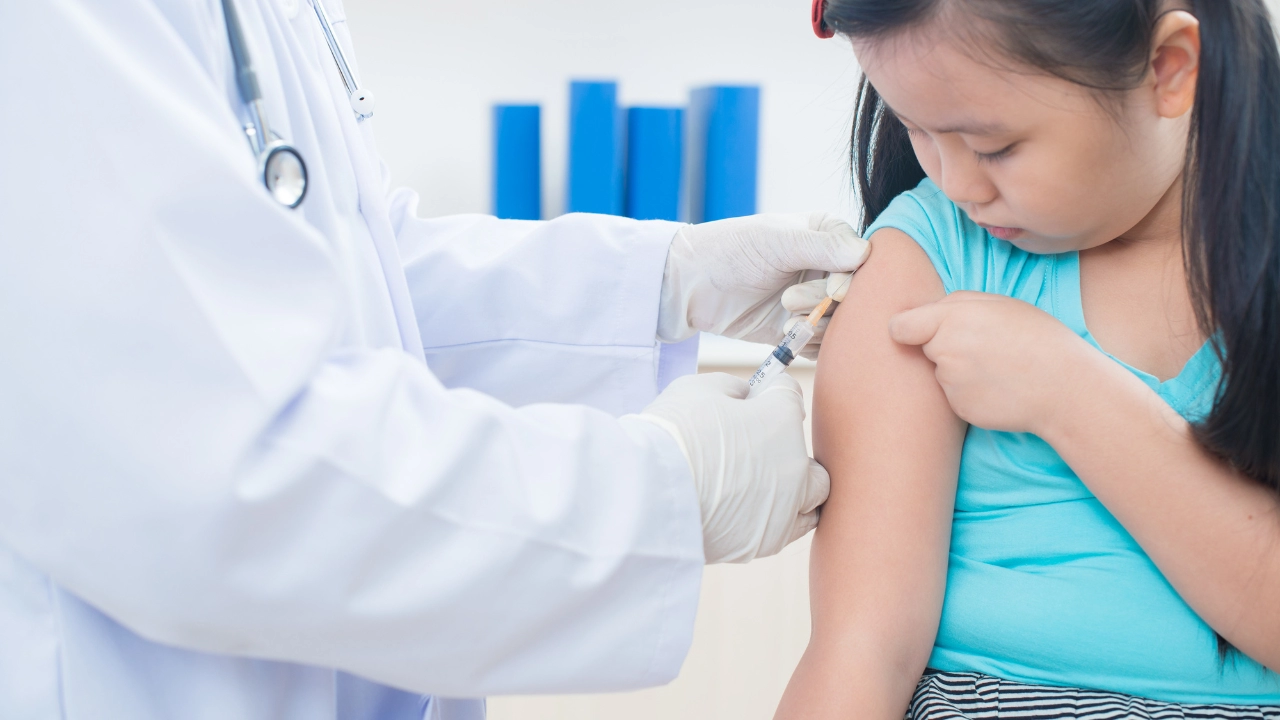Supriya Ramesh • 14 Nov 2024
Life-Saving Vaccines Your Child Can’t Afford to Miss in India

Image - Canva
Vaccinations play a crucial role in keeping children safe from a wide range of diseases, viruses, and bacteria. Children are vulnerable to certain communicable diseases and timely vaccinations provide the child with a 90% chance of immunity.
According to Dr Gaurav Jain, Senior Consultant - Neonatology & Paediatrics at Aakash Healthcare, New Delhi, timely vaccinations provide a significant level of immunity, often up to 90%, against vaccine-preventable diseases. These vaccines are essential from birth until the age of 12, as children remain vulnerable to certain communicable diseases throughout these years.
“Several illnesses that were once widespread, such as HPV, tetanus, whooping cough, and diphtheria, are still present today,” says Dr Jain. Moreover, vaccinations not only help prevent these diseases but also protect children from severe health complications.
Essential Vaccines for Children According to the Expert
BCG Vaccine
The Bacillus Calmette-Guérin (BCG) vaccine has been used for over 80 years and is one of the most effective ways to protect against tuberculosis. “In a country like India, where tuberculosis is widespread and easily transmitted, the BCG vaccine is essential,” says Dr Jain. This vaccine is typically administered within a few days of birth.
Hepatitis B Vaccine
Hepatitis B is a highly contagious virus that affects the liver. Dr Jain stresses, “It’s crucial to administer the Hepatitis B vaccine soon after birth or within the first seven days of life to ensure early protection.”
Oral Polio Vaccine (OPV)
Polio is a crippling and potentially life-threatening disease. “The oral polio vaccine should be given at birth or as early as possible within 25 days to build immunity against this dangerous virus,” says Dr Jain.
Pentavalent Vaccine
The pentavalent vaccine combines five antigens in one: hepatitis B, diphtheria, pertussis, tetanus, and Haemophilus influenzae type b (Hib). Dr Jain says, “This combination offers comprehensive protection against severe bacterial infections. The vaccine is administered in three doses at six, ten, and fourteen weeks of age.”
Rotavirus Vaccine (RVV)
Rotavirus can lead to serious gastrointestinal distress, including fever, cramps, vomiting, and diarrhoea, which can result in severe dehydration or even death. Dr Jain advises, “The rotavirus vaccine should be given in doses at six, ten, and fourteen weeks.”
Pneumococcal Conjugate Vaccine (PCV)
“PCV is crucial for protecting against pneumonia and other severe pneumococcal infections,” says Dr Jain. The vaccine is administered in three doses: at six weeks, fourteen weeks, and nine months.
Measles-Rubella Vaccine (MR)
“The MR vaccine provides protection against measles and rubella, two highly contagious viral diseases,” states Dr Jain. Measles can lead to fever, rash, respiratory infections and in some cases death. He adds that rubella though milder of the two, can lead to tender lymph nodes, rashes and fever. Children usually receive the MR shot at around 9 to 12 months, while the second is given before the child turns 2.
Inactivated Polio Vaccine (IPV)
“Inactivated Polio Vaccine (IPV) unlike the oral vaccine, is injected into the body. Along with oral vaccine, IPV protects from the destruction of the poliovirus,” says Dr Jain.
Japanese Encephalitis Vaccine (JE)
“Japanese encephalitis is a mosquito-borne disease endemic to certain parts of India. It is one of the most important vaccinations for children in India to ensure the safety of the kids from this deadly disease,” he says. The JE vaccine is administered typically after 9 to 12 months of birth, followed by a booster shot at 1 to 24 months.
Get Latest News Live on Times Now along with Breaking News and Top Headlines from Health and around the world.